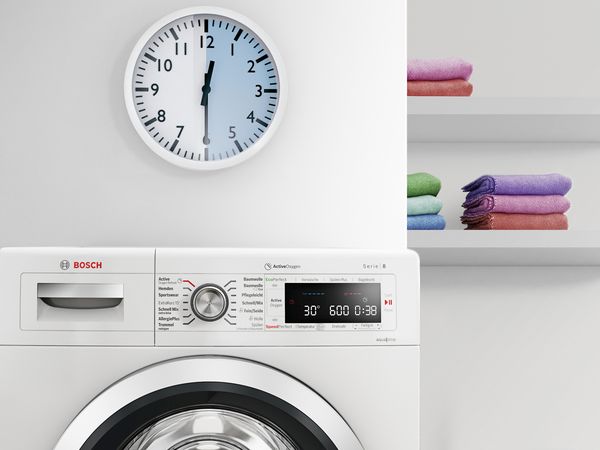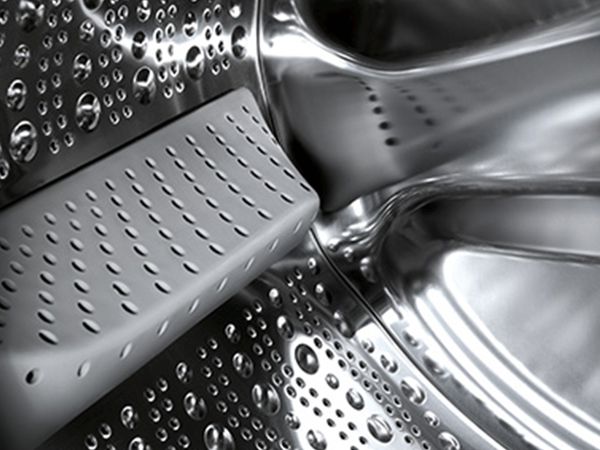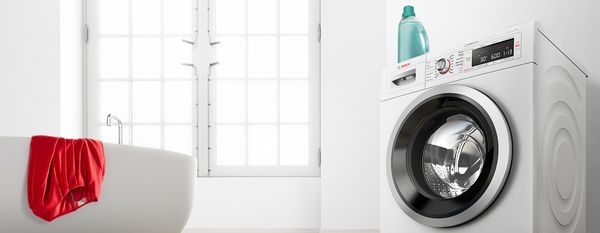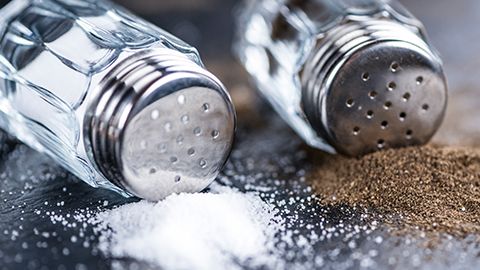Chalking up hefty utility bills each month? The best way to reduce water and energy usage is to simply learn how to operate home appliances such as your washing machine in a resource-efficient way. Here are 4 easy steps to get you started.
Features may vary depending on the model. Check your product specifications for details.

Use the correct temperature settings
Not only is using cold water gentlest on your clothing, it is also the most energy-saving option as your washer does not need to use extra energy heating up the water. Look for detergents that are designed to work with cold water for optimum wash results, and leave washing in hot water for items that really need sanitising – such as baby clothes and sportswear.
Check your clothing label for washing instructions. In general, natural fabrics like wool, silk, satin and synthetic fabrics like polyester can be washed at 30°C. Cotton and linen can be washed at 60°C.
If in doubt, use a Mixed Load programme or 40°C temperature setting. Household items like towels, bed sheets and down blankets can be washed at 60 – 90°C for thorough cleaning.
Time is of the essence
If you have a habit of washing and drying clothes before or after work, timer programmes can give you a lot of flexibility and convenience. Instead of waking up early to jumpstart the wash programme or wasting time waiting for it to end, certain washing machines can be programmed to operate automatically.
Bosch’s Time Delay programme allows you to set the end time of your wash by up to 24 hours in advance, which means you can wake up or come home to laundry freshly washed and ready for drying!


Get the load and dose right
Always load your washing machine optimally, filling it up to its capacity. Contrary to popular belief, most washing machines use the same amount of electricity and water for partial loads and full loads. Bosch’s automatic wash programmes detect the amount and soiling degree of textiles to be washed, prescribing the optimal washing programme and water usage for each load.
Inaccurate dosing can lead to excess use of detergent, which results in your washing machine using more electricity and water to rinse your clothes. Certain premium models from Bosch have the inbuilt i-DOS automatic dosing system, which determines and dispenses the precise amount of liquid detergent for every wash.
Clean your drums regularly
Just like a food detox, cleaning your washing machine will help to remove excess dirt and grime, gunk from your detergent and mold that may be passed onto your laundry or preventing your washing machine from functioning at its peak.
Get rid of deposits on the drum by cleaning it every 2–3 months. Run a wash programme which operates at 90°C with an empty load and add in some bleach. Some Bosch washing machines come with a Drum Clean programme to ensure your washing machine smells fresh and pleasant.





